Is your Samsung Galaxy phone frequently freezing, disrupting your smooth smartphone experience? Don’t worry; you’re not alone. In this comprehensive guide, we’ll walk you through ten practical solutions to fix the freezing issue and get your Samsung Galaxy phone back to its optimal performance.
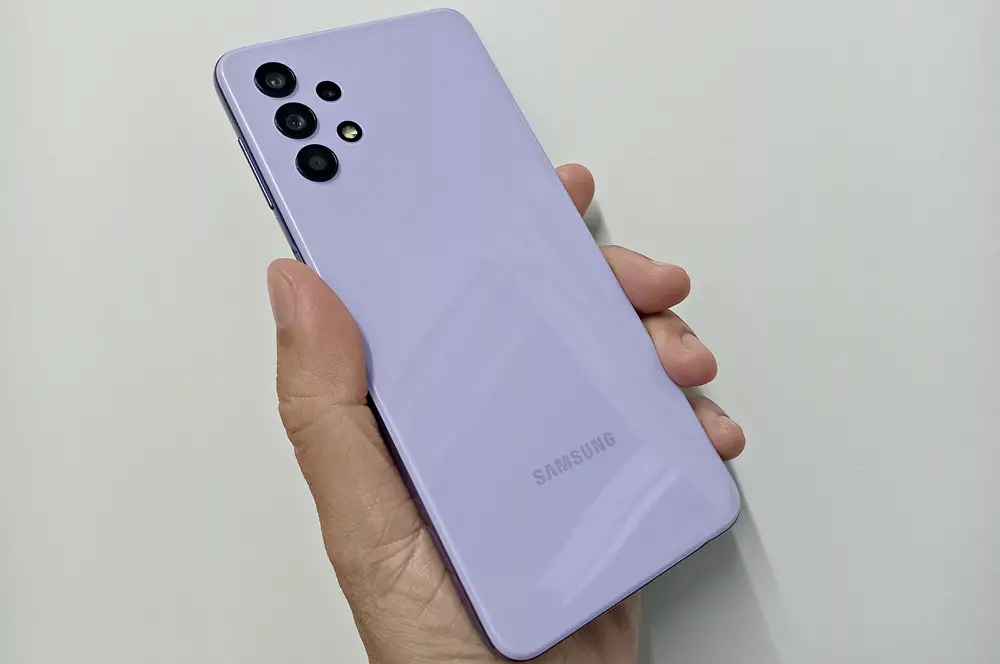
What Causes a Samsung Galaxy Phone to Keep Freezing?
Understanding the root causes behind your Samsung Galaxy phone freezing issues is crucial to implementing effective solutions. Several factors could contribute to this problem:
- Running too many apps simultaneously can strain your phone’s RAM, leading to freezes.
- Having outdated software can cause compatibility issues and result in performance problems.
- Certain apps may have bugs or conflicts that can cause the phone to freeze unexpectedly.
- When your phone’s storage is near capacity, it can hinder its ability to function smoothly, leading to freezing.
- Security threats can affect your phone’s performance and lead to freezing issues.
Above are some of the common factors that could cause your Samsung Galaxy phone to keep freezing. Now, let’s discover the 10 effective fixes for this issue.
1. Restart Your Phone
Why it works:
Restarting your Samsung Galaxy phone is often the quickest and simplest solution to fix performance issues, including freezing. When your device restarts, it closes all running apps and processes, allowing the operating system to start afresh.
How to do it:
1. Press and hold the power button located on the side or back of your phone.
2. Once the power menu appears on the screen, select “Restart.”
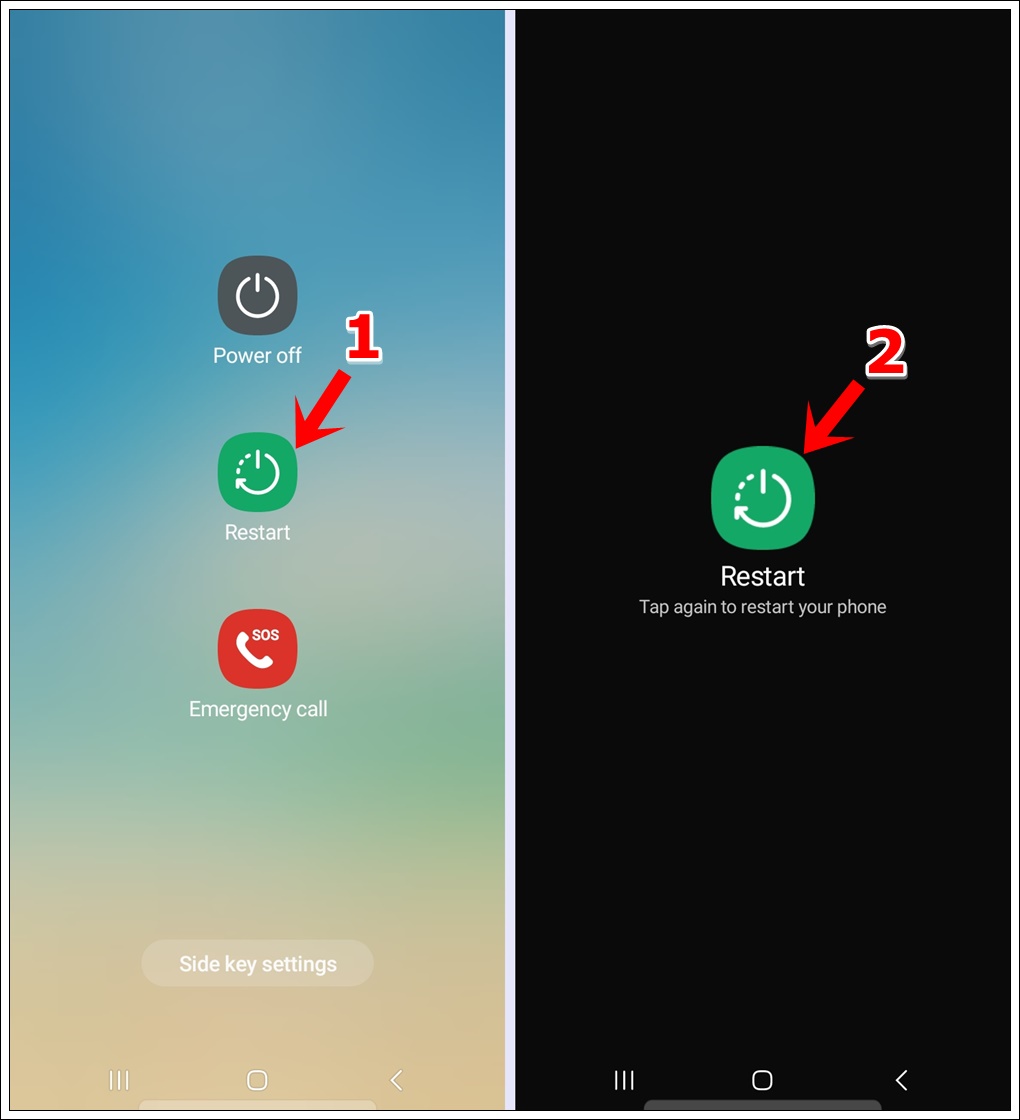
3. Wait for your phone to power down and then restart automatically.
4. Check if the freezing issue persists after the restart.
Pro Tip: Performing a regular restart is a good practice to keep your phone running smoothly. Consider restarting your device at least once a week to prevent the accumulation of background processes that might contribute to freezing.
2. Update Software
Why it works:
Keeping your Samsung Galaxy phone’s software up to date is crucial for optimal performance. Updates often include bug fixes, improvements, and enhanced compatibility, addressing issues that could lead to freezing.
How to do it:
1. Open the “Settings” app on your phone.
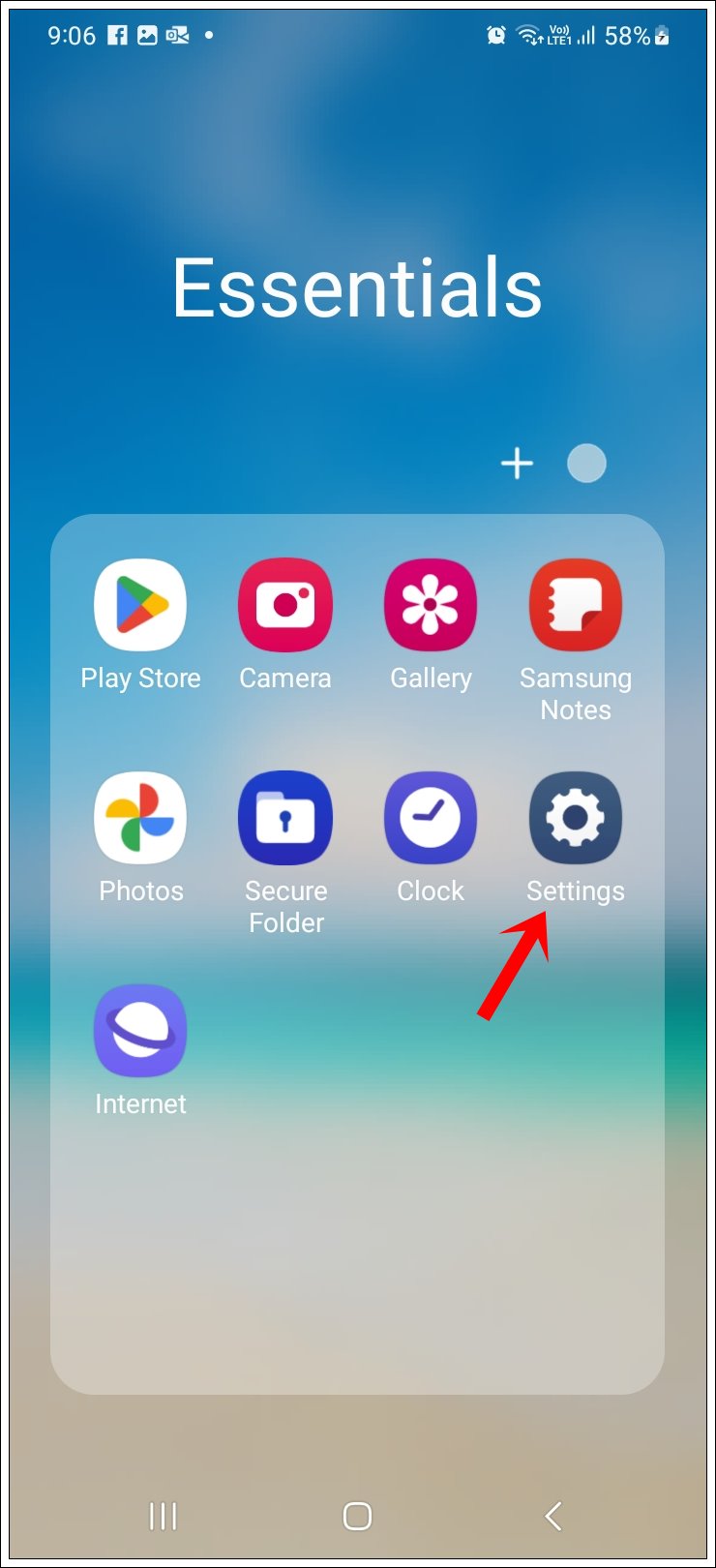
2. Scroll down and select “Software Update.”
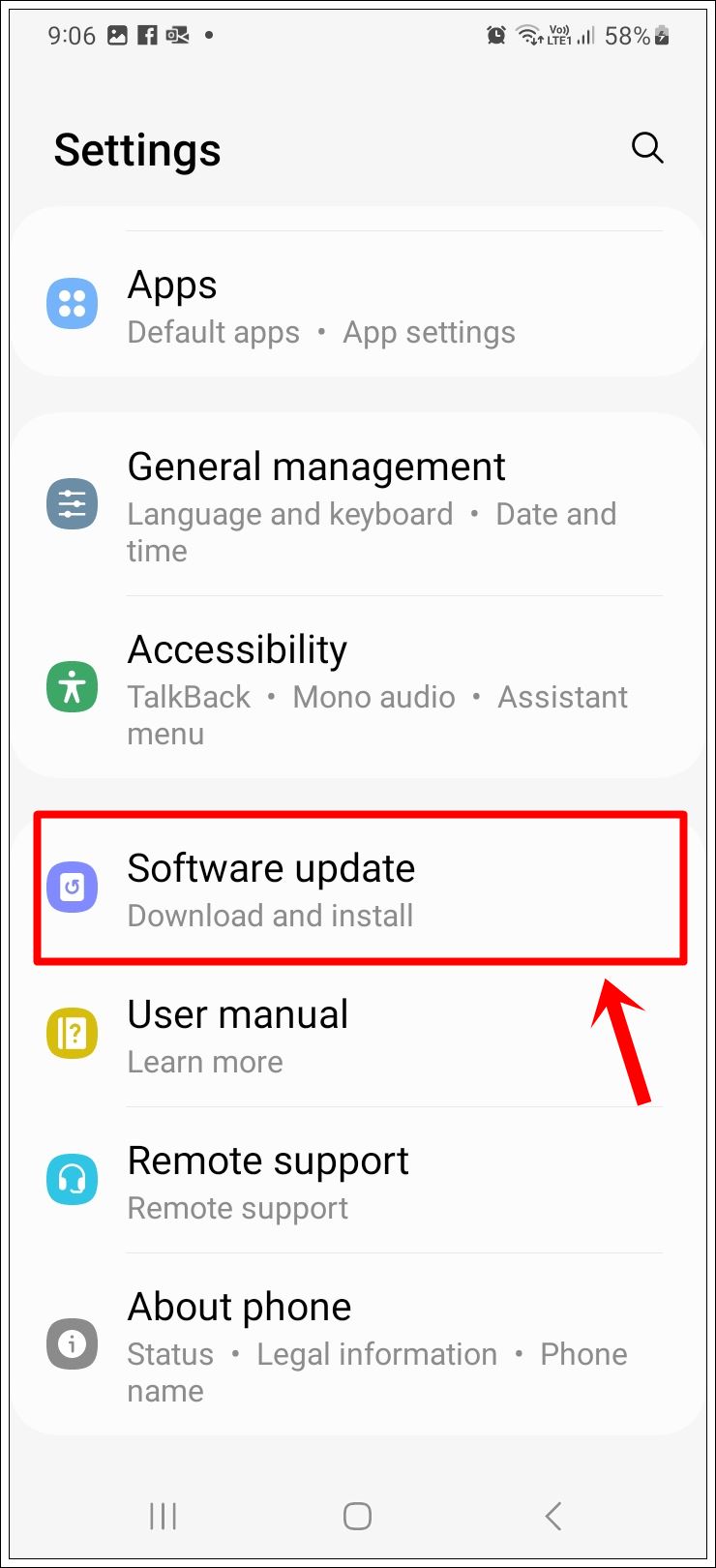
3. Tap “Download and Install” if an update is available.
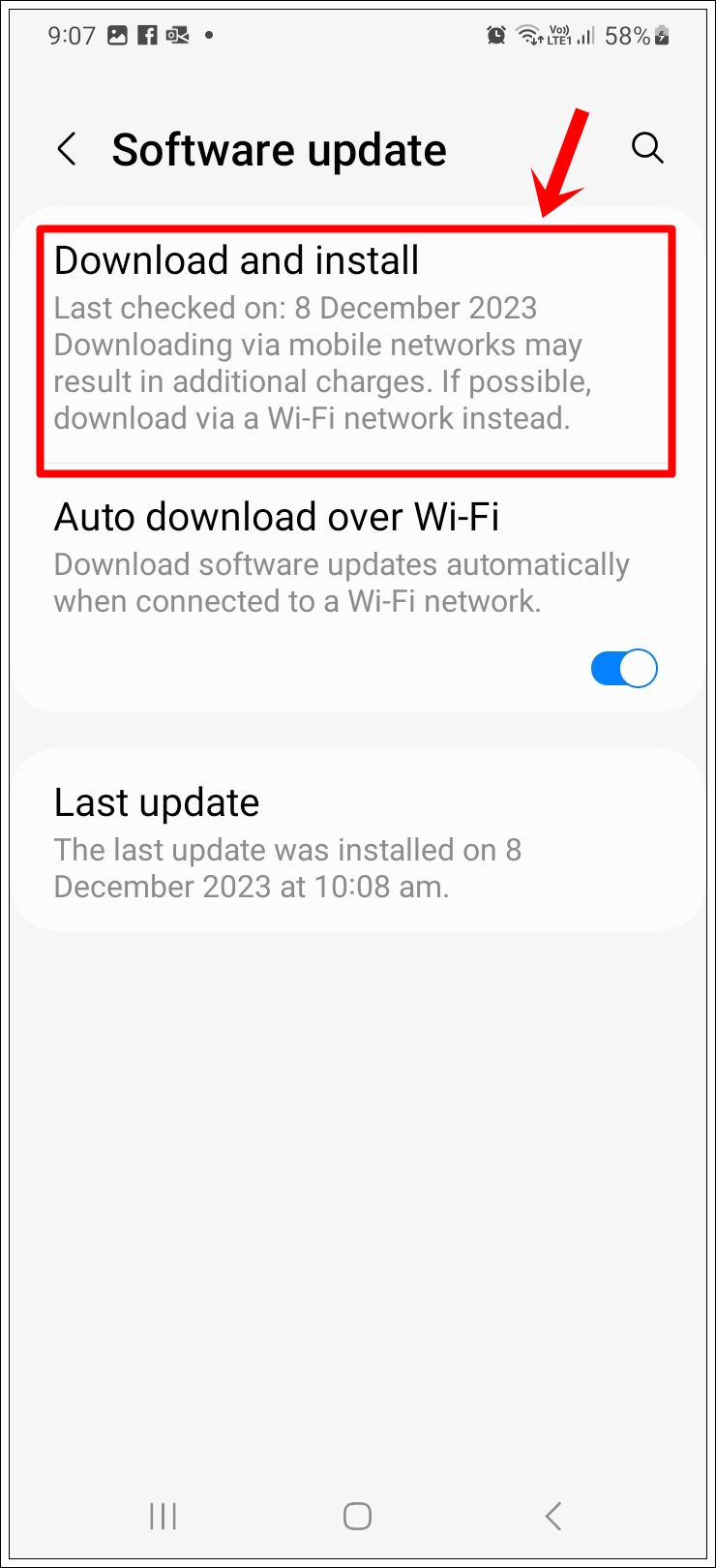
4. Follow the on-screen instructions to complete the update.
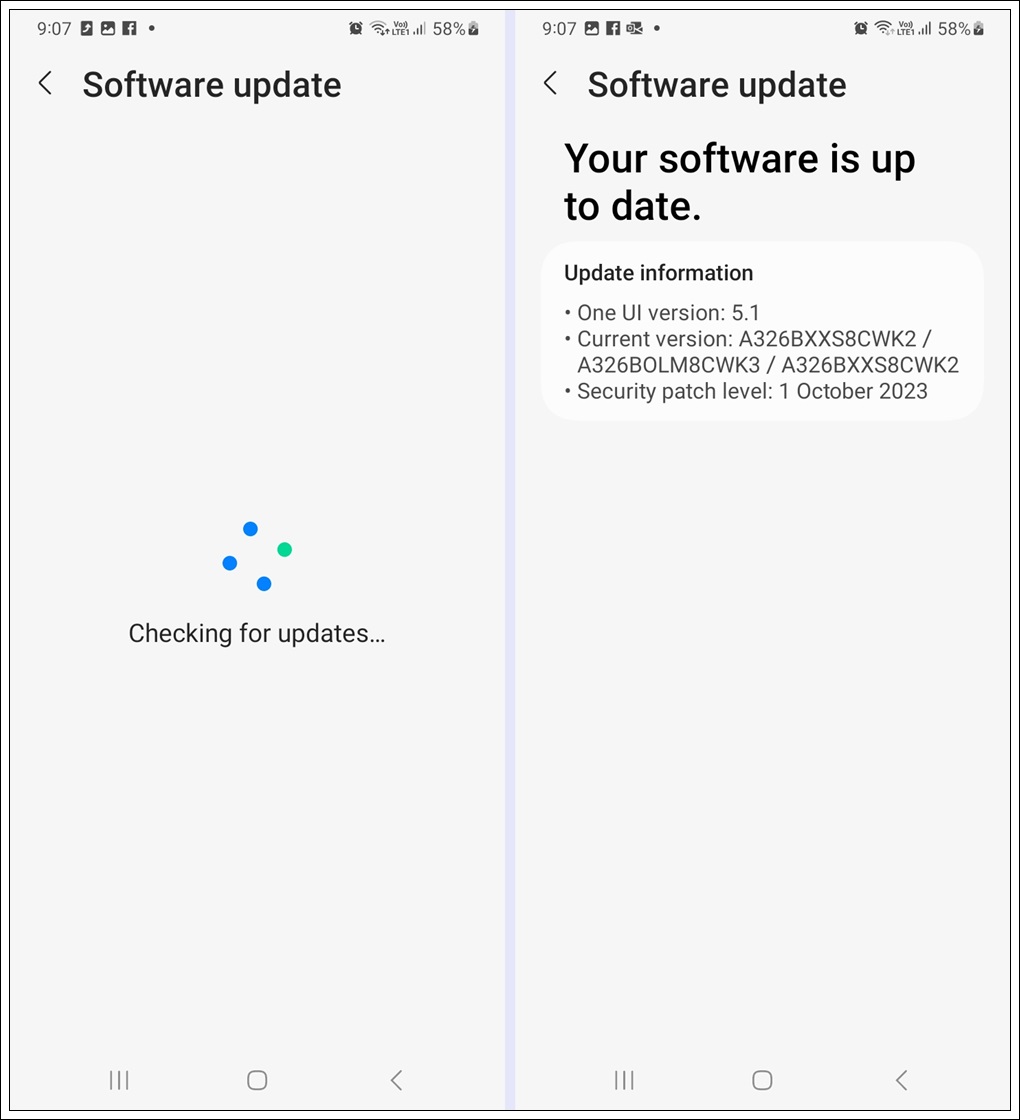
Pro Tip: Enable automatic updates to ensure your phone regularly receives the latest software improvements. This proactive approach helps prevent potential freezing issues associated with outdated software.
3. Clear App Cache
Why it works:
Over time, cached data from apps can accumulate and lead to performance issues, including freezing. Clearing the app cache helps refresh the application and can resolve problems related to stored temporary files.
How to do it:
1. Open the “Settings” app on your Samsung Galaxy phone.

2. Navigate to “Apps” or “Application Manager,” depending on your device.
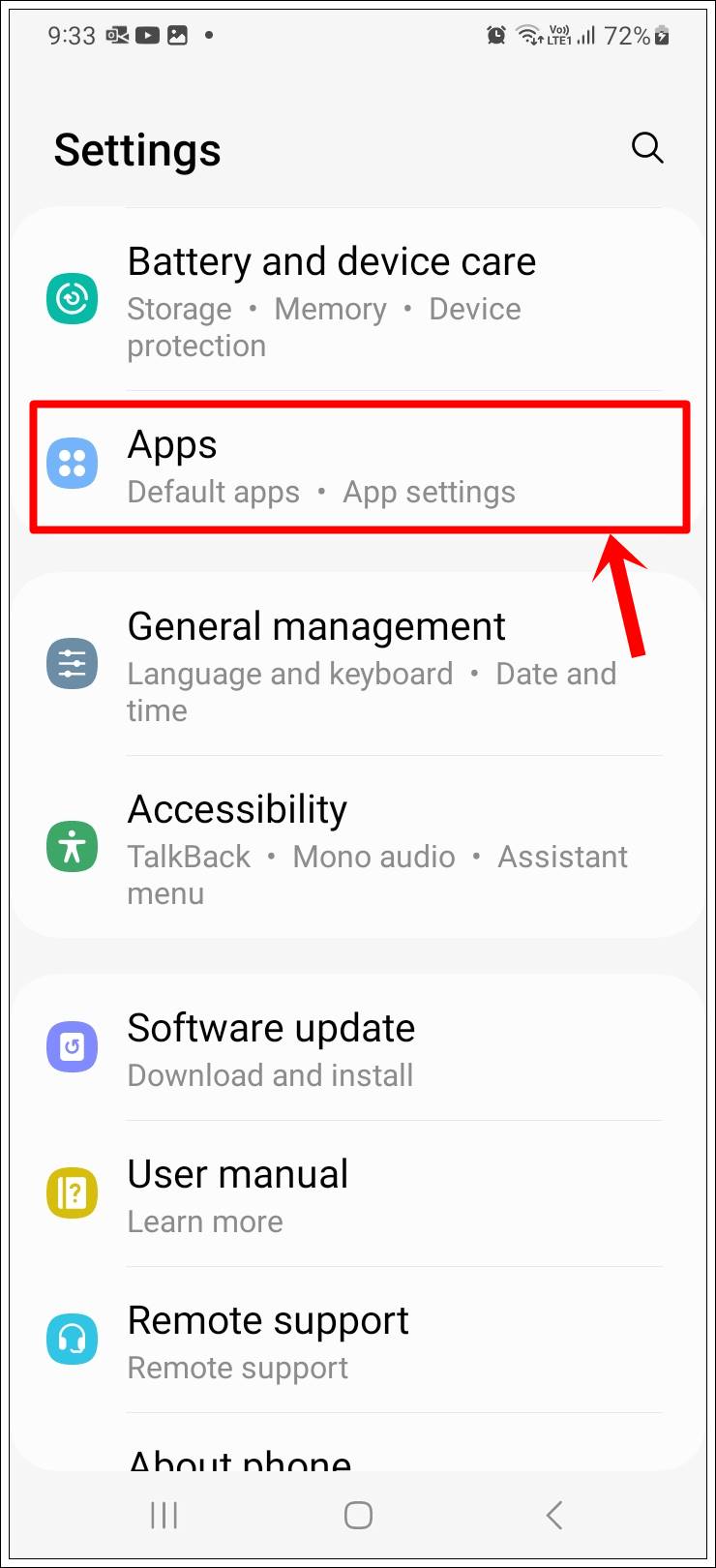
3. Select the specific app causing issues.
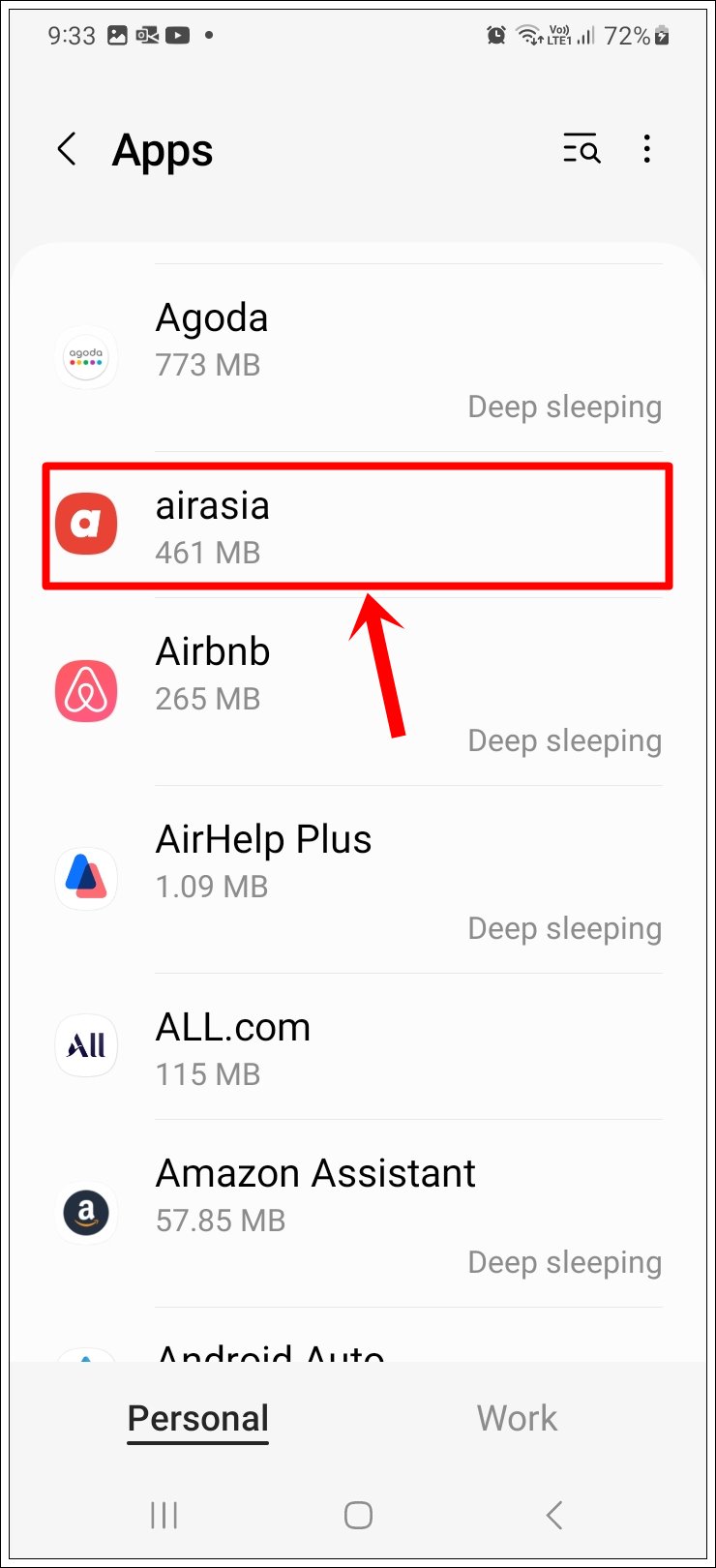
4. Tap on “Storage” and then choose “Clear Cache.”
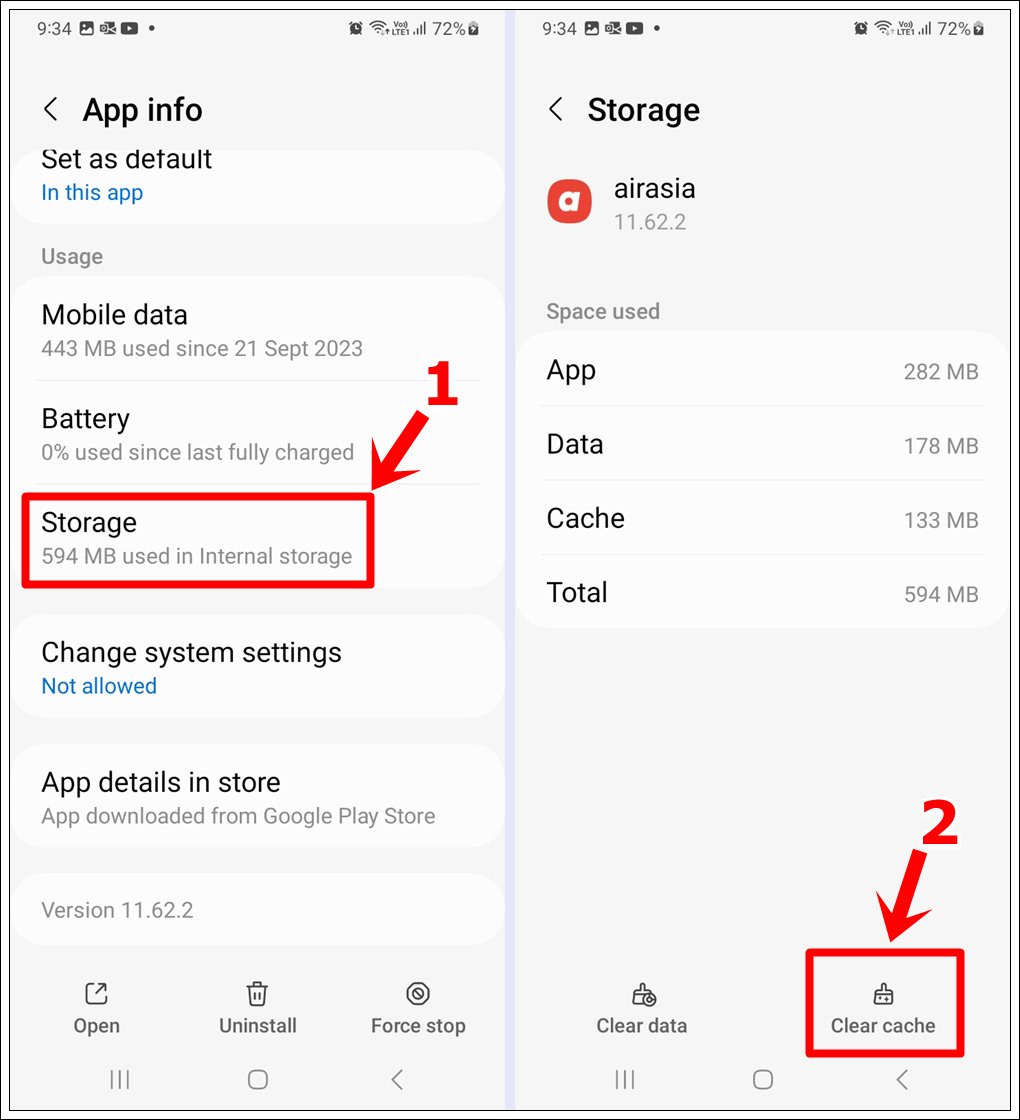
Pro Tip: Consider clearing the cache for multiple apps, especially those you use frequently, to maintain optimal performance. However, note that clearing the cache may log you out of some apps temporarily.
Read also: How to Clear Cache on Android – 5 Tips for a Smoother Performance
4. Uninstall Unused Apps
Why it works:
A cluttered app environment can strain your phone’s resources, contributing to freezing issues. Uninstalling unused or unnecessary apps frees up valuable space and reduces the load on your device.
How to do it:
1. Go to the “Settings” app on your Samsung Galaxy phone.

2. Navigate to “Apps” or “Application Manager.”

3. Select the app you want to uninstall.

4. Tap on “Uninstall” or “Disable.”
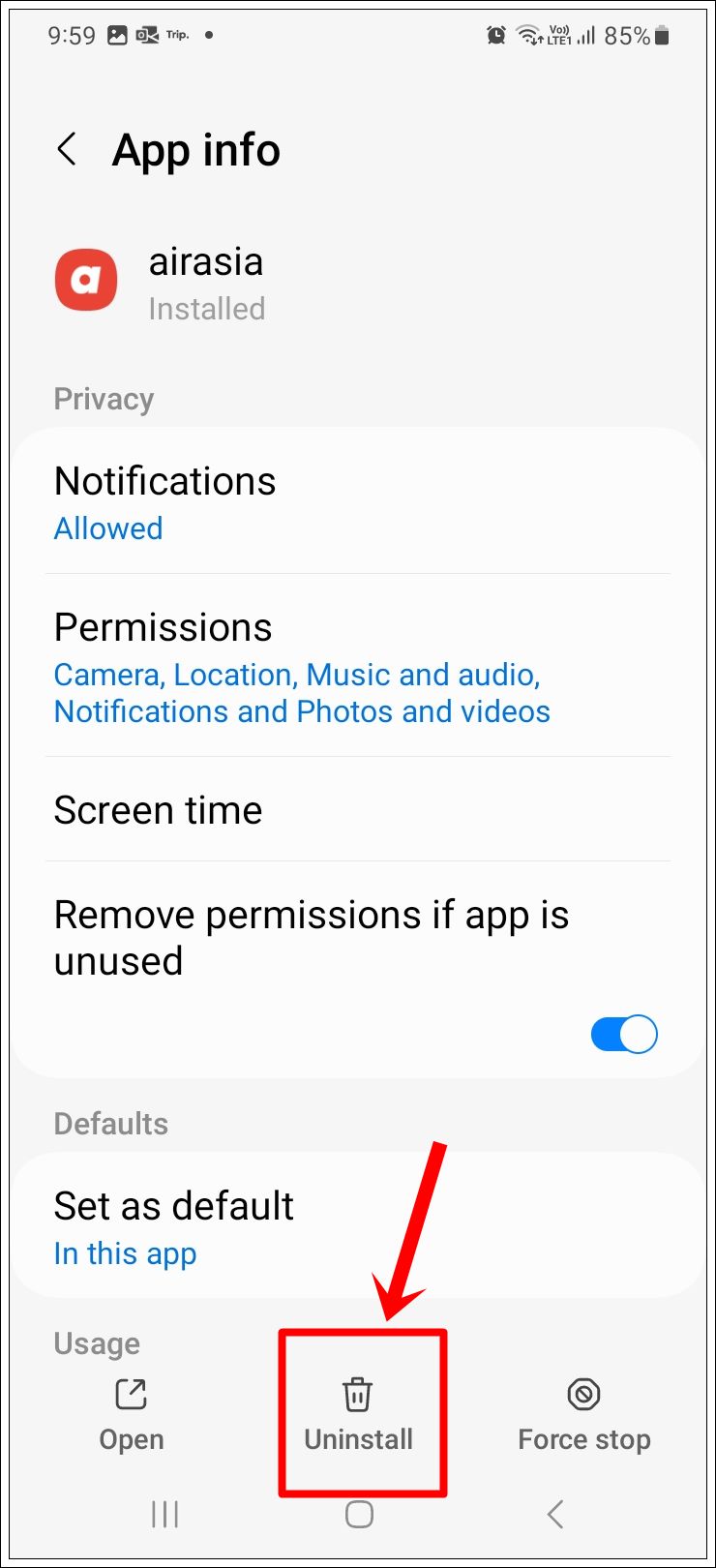
Pro Tip: Regularly review your installed apps and remove those you no longer use. This not only improves performance but also enhances storage efficiency.
Read also: How to Use Samsung Galaxy Magnifier and Magnification Features
5. Check Storage Space
Why it works:
Insufficient storage space can impact your Samsung Galaxy phone’s performance, leading to freezing and slowdowns. Checking and managing your device’s storage helps maintain optimal functionality.
How to do it:
1. Open the “Settings” app on your phone.

2. Navigate to “Storage” or “Battery and Device Care,” depending on your device.
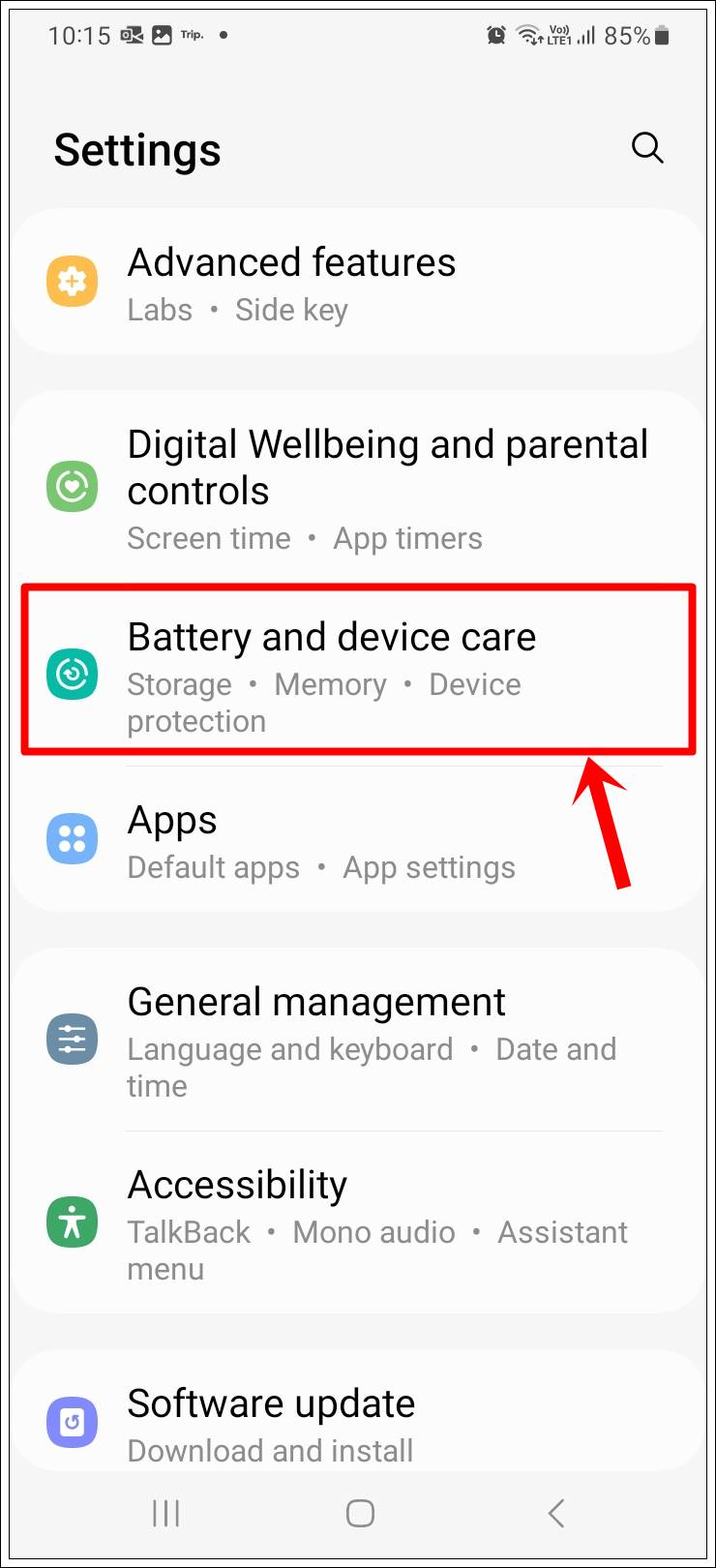
3. Review the storage breakdown to identify space-consuming items.
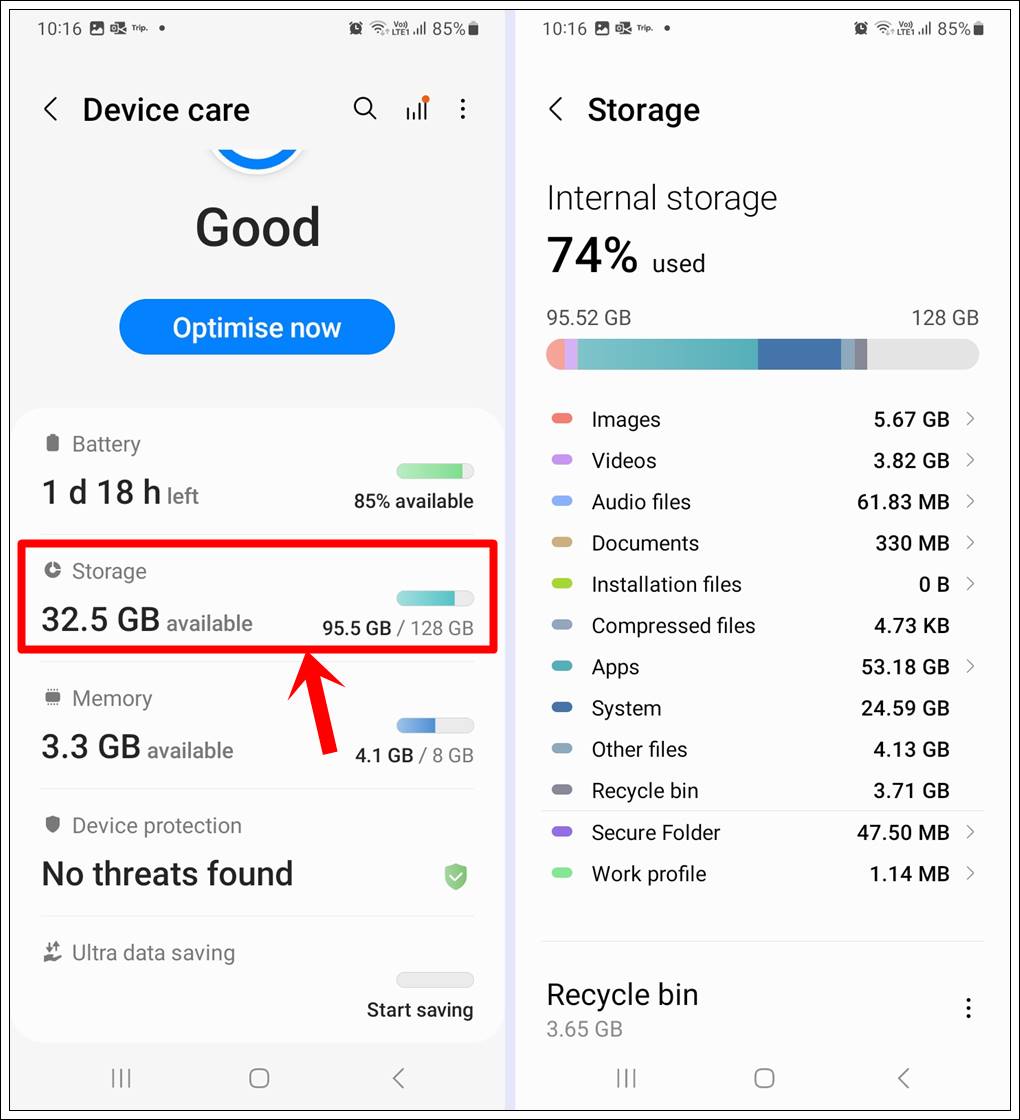
4. Delete unnecessary files or move them to an external storage device.
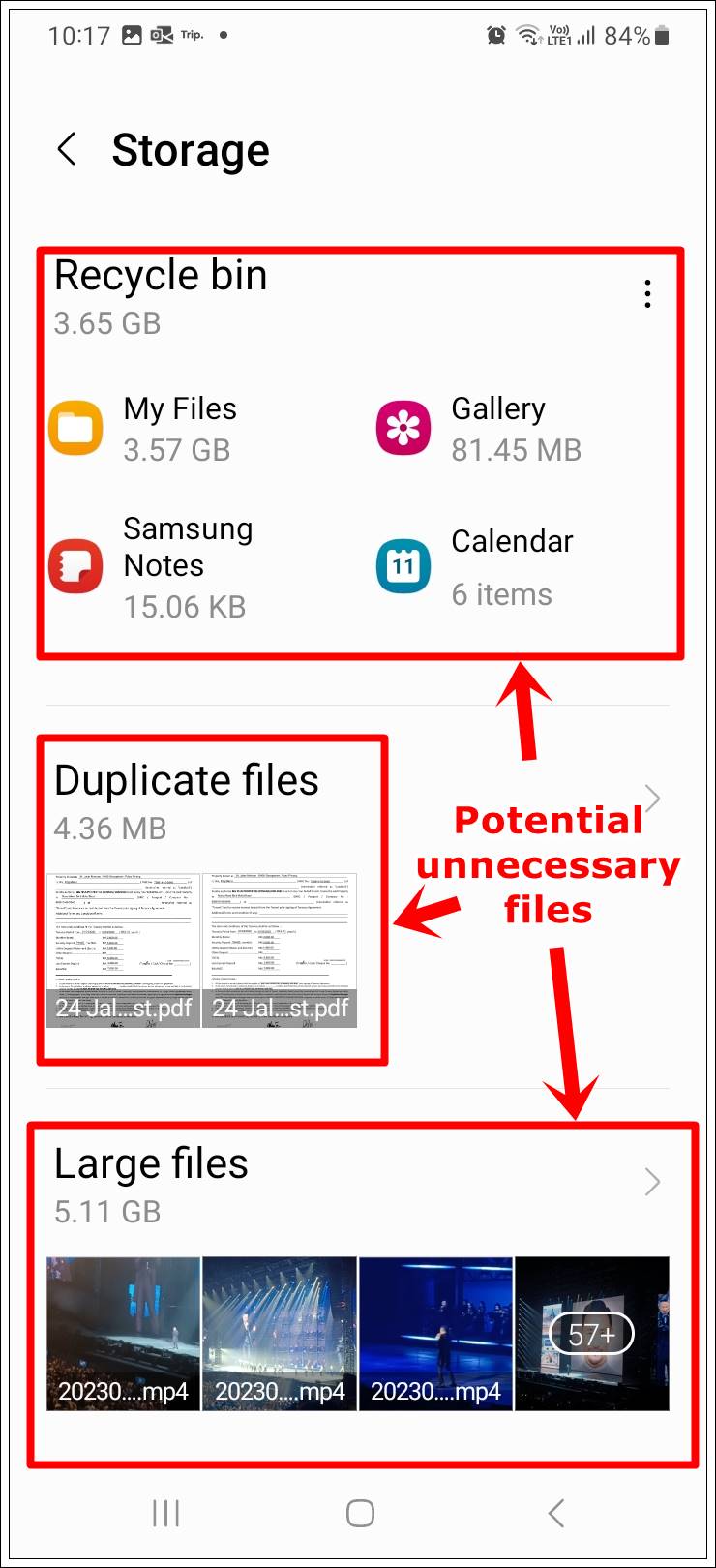
Pro Tip: Regularly clean up your storage by removing old photos, videos, and large files. Consider using cloud services or external storage options to keep your device storage well-managed.
6. Safe Mode Troubleshooting
Why it works:
Booting your Samsung Galaxy phone in safe mode allows you to identify if a third-party app is causing the freezing issue. Safe mode temporarily disables third-party apps, helping you pinpoint the source of the problem.
How to do it:
1. Hold down the power button until the screen displaying options such as “Power off,” “Restart,” and “Emergency call” becomes visible.
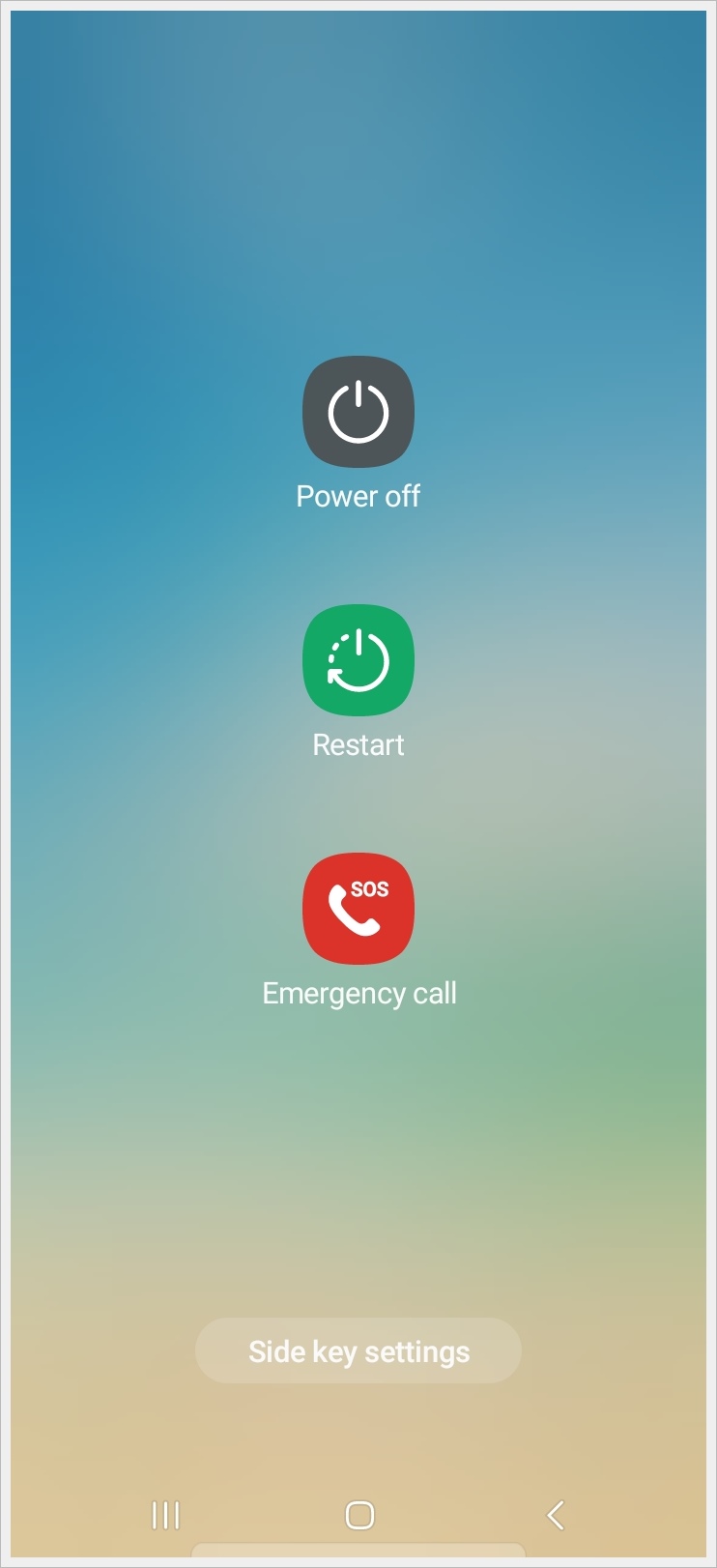
2. Press and hold the “Power off” button.
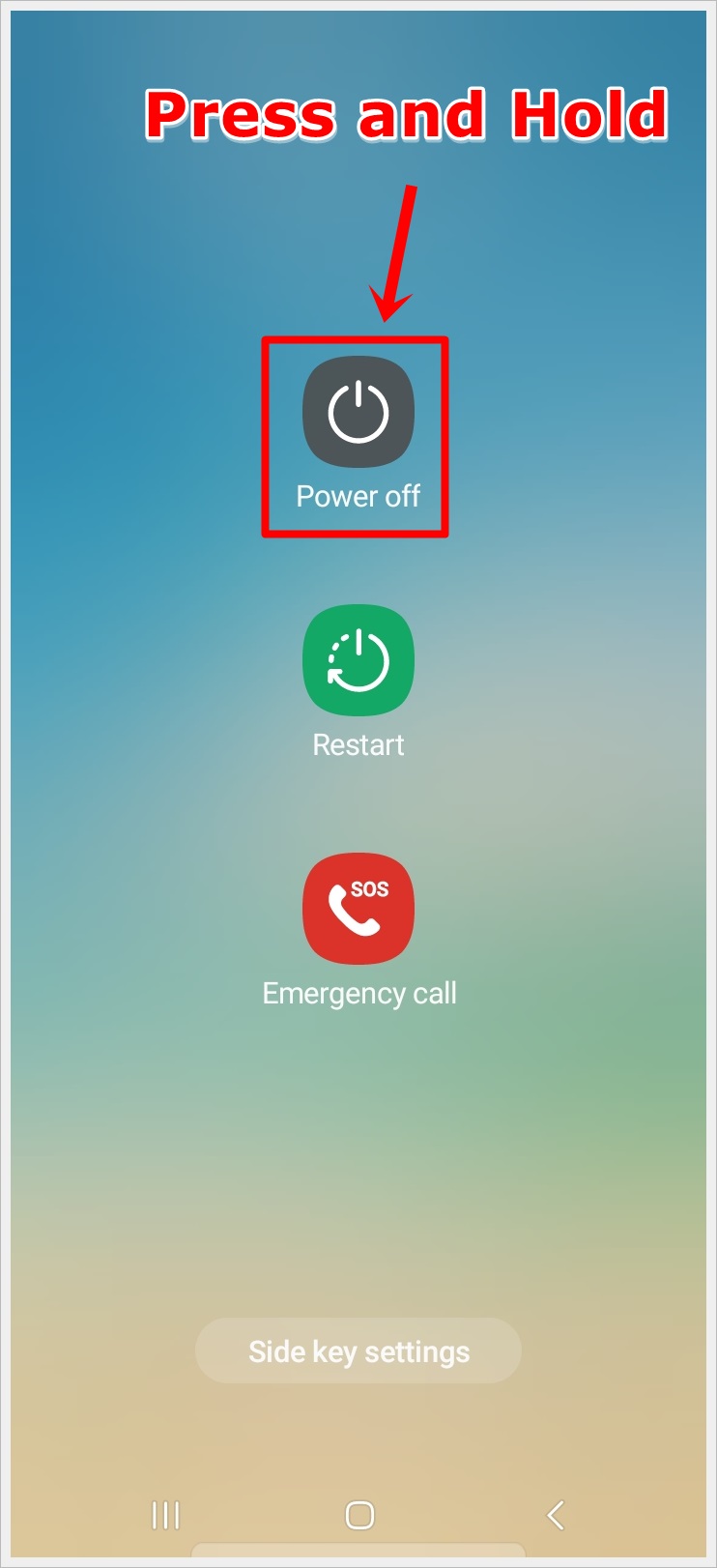
3. The screen featuring the “Safe mode” icon will be displayed. Touch the “Safe mode” icon to initiate a restart of your phone in Safe Mode.
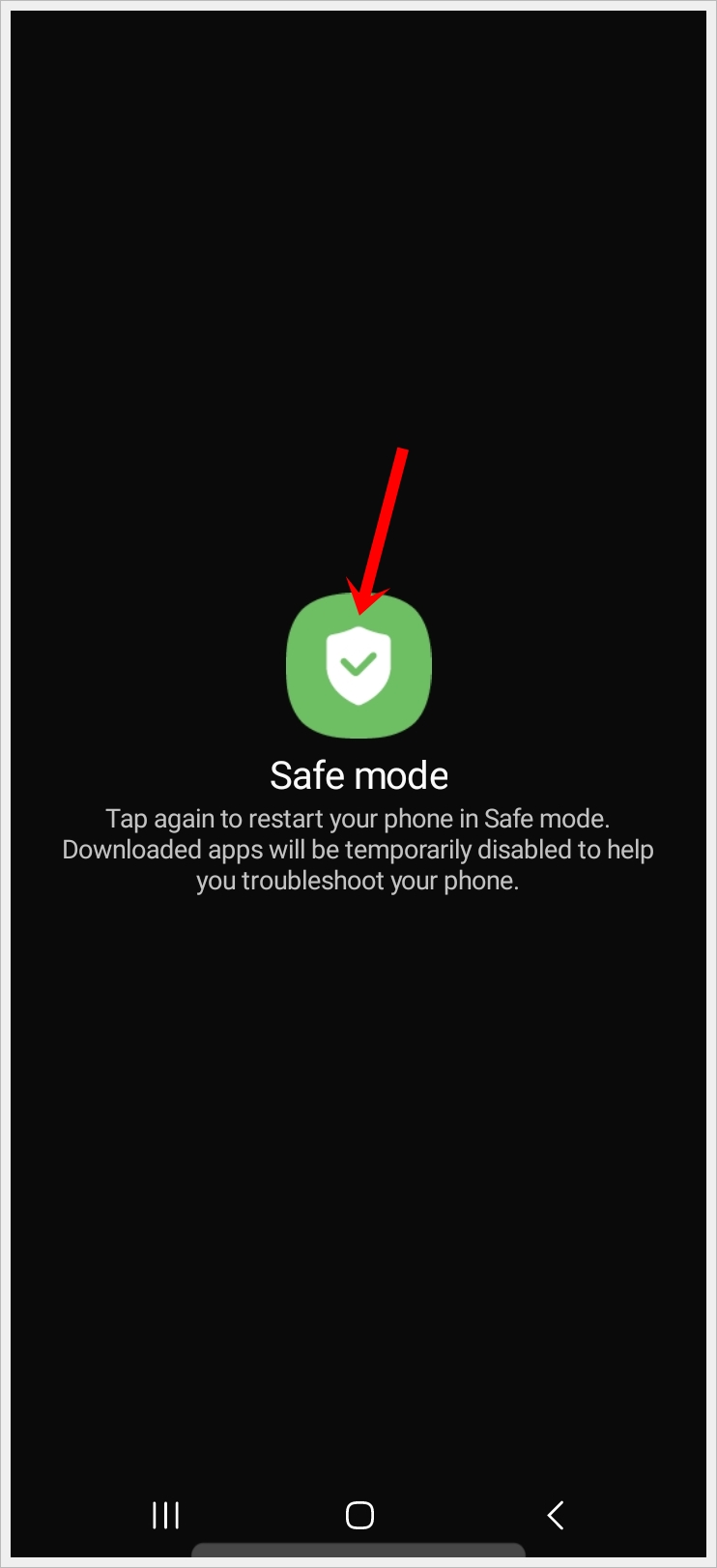
4. Following the restart, your phone will show the “Safe Mode” watermark in the bottom-left corner, signifying that it is currently in Safe Mode.
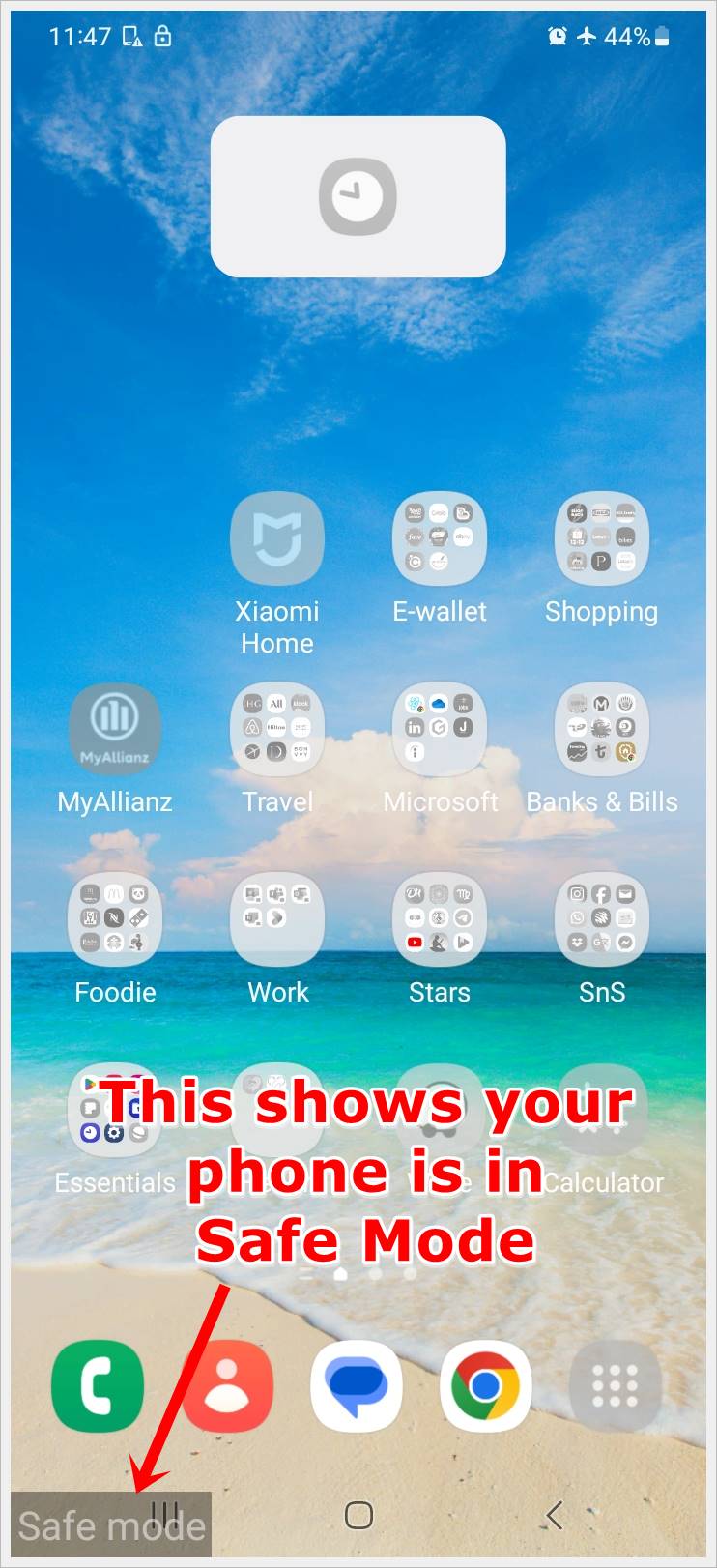
5. Check if the freezing issue persists in safe mode.
Pro Tip: In safe mode, only pre-installed system apps are active. If your phone performs well in safe mode, it indicates that a third-party app is likely causing the freezing problem.
Read also: How to Enable or Disable Safe Mode on Your Android Phone
7. Wipe Cache Partition
Why it works:
Clearing the system cache partition can fix glitches and temporary system files that may contribute to freezing issues on your Samsung Galaxy phone.
How to do it:
1. Power off your Samsung Galaxy phone.
2. Press and hold the volume up and power buttons simultaneously.
3. Release the buttons when the Android recovery menu appears.
4. Use the volume buttons to navigate to “Wipe Cache Partition” and use the power button to select it.
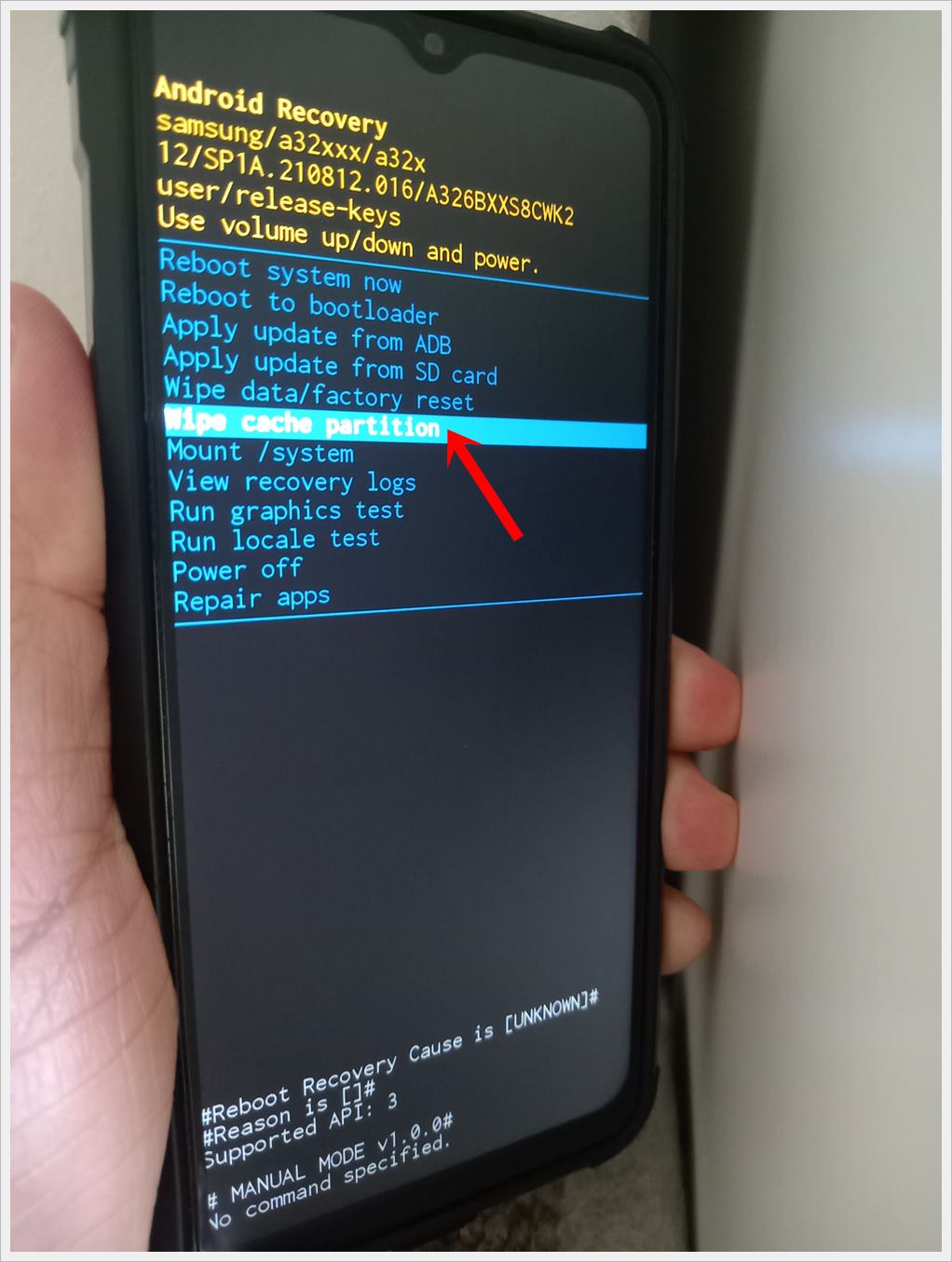
5. Confirm the “Wipe cache” action.
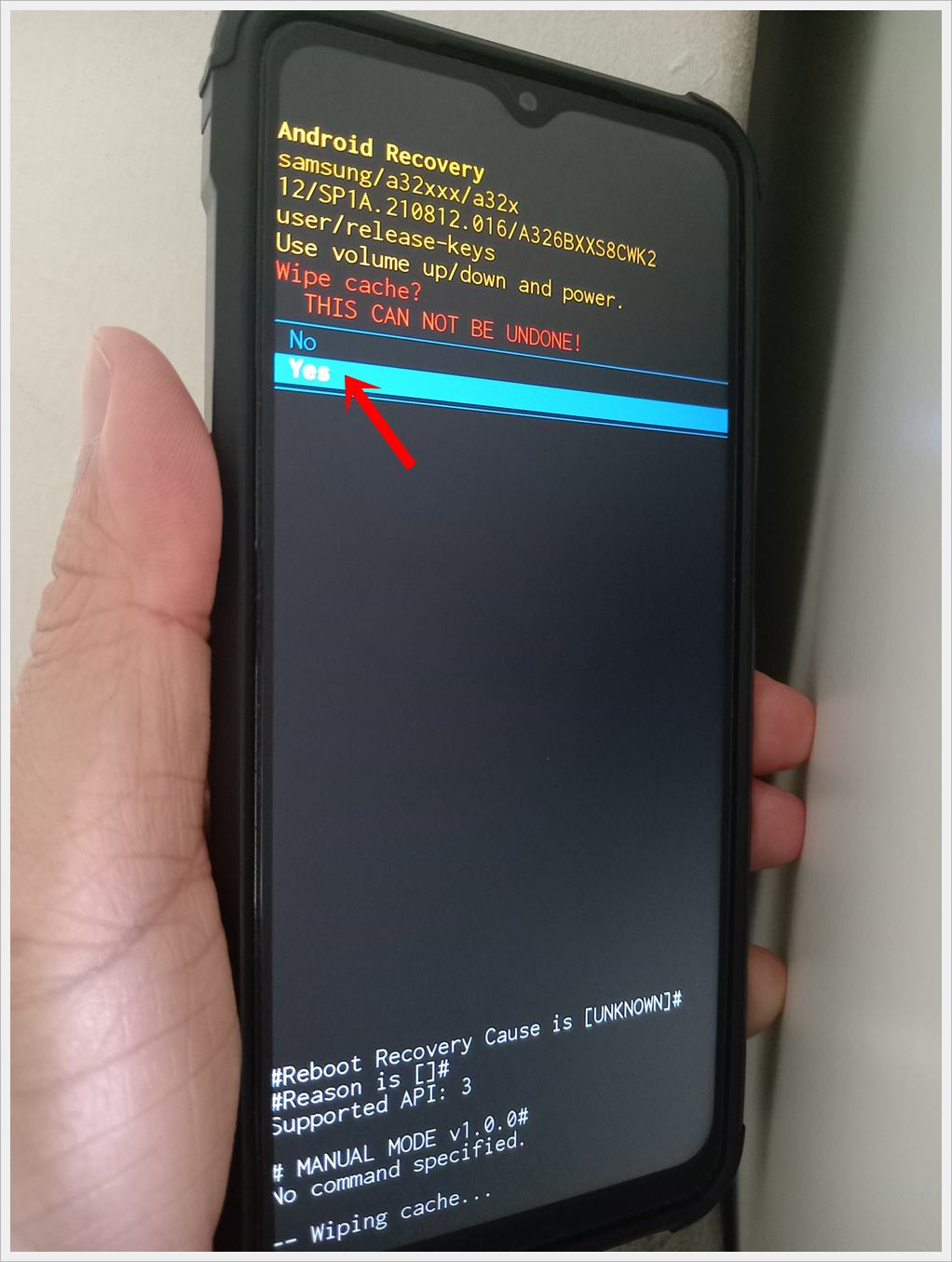
6. Once completed, reboot your phone.
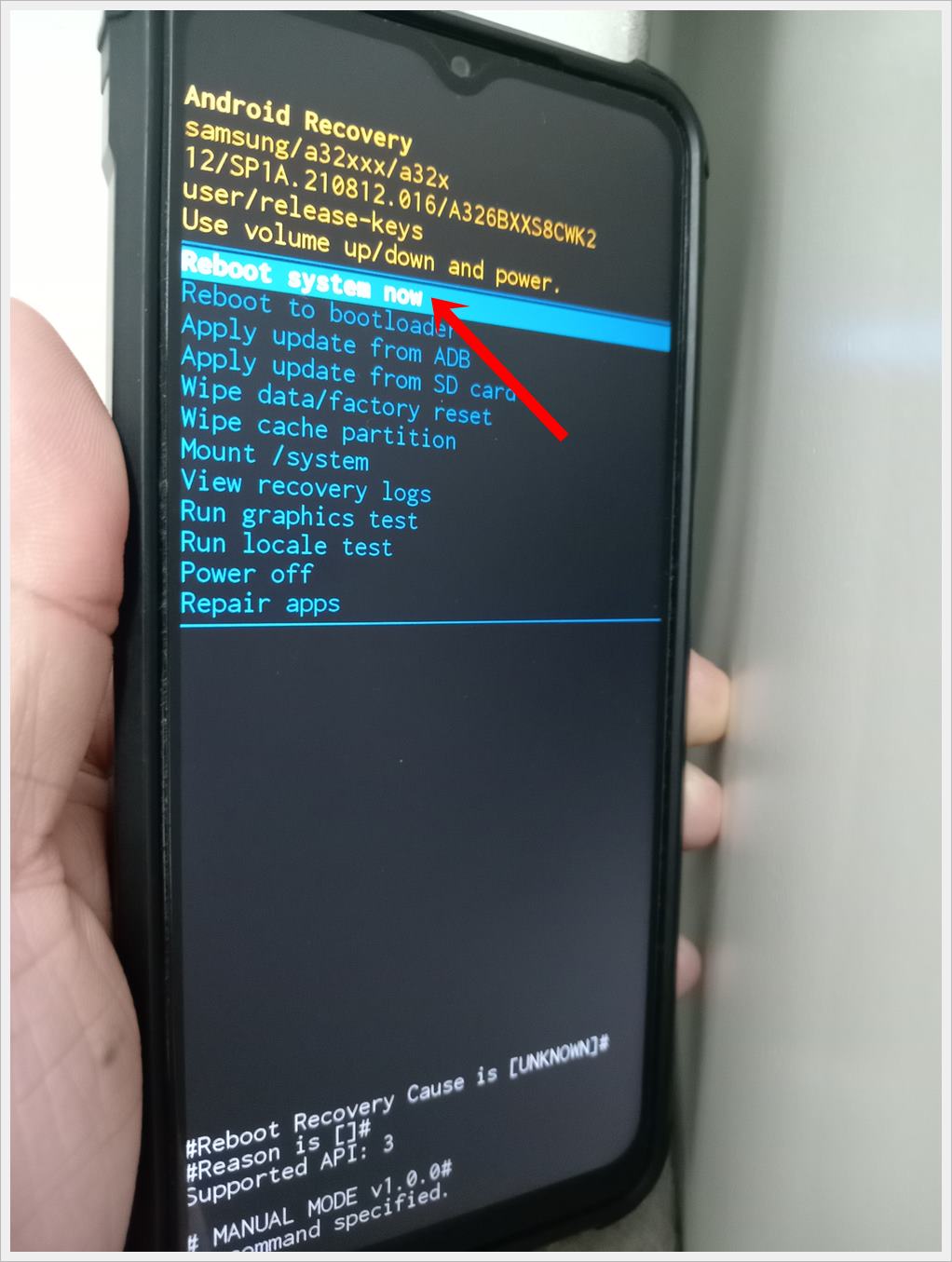
Pro Tip: Wiping the cache partition does not delete your personal data but focuses on system files. This process can be particularly effective in addressing freezing problems caused by corrupted system files.
8. Factory Reset
Why it works:
A factory reset is a comprehensive solution that restores your Samsung Galaxy phone to its original settings, eliminating potential software glitches and conflicts causing freezing issues.
How to do it:
1. Backup your important data, as a factory reset will erase all data on your device.
2. Go to the “Settings” app on your Samsung Galaxy phone.

3. Navigate to “General Management” or “System,” depending on your phone model.
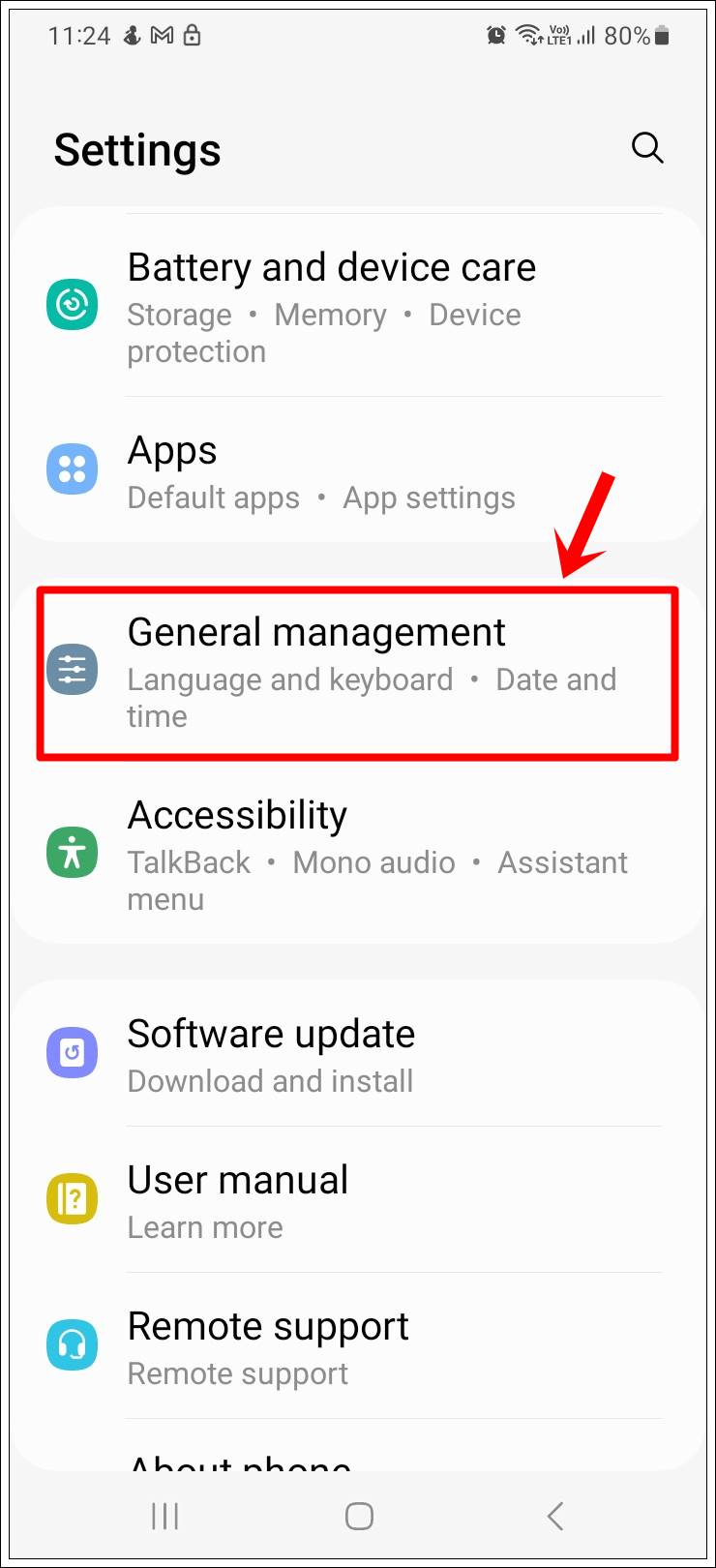
4. Select “Reset” and then choose “Factory Data Reset.”
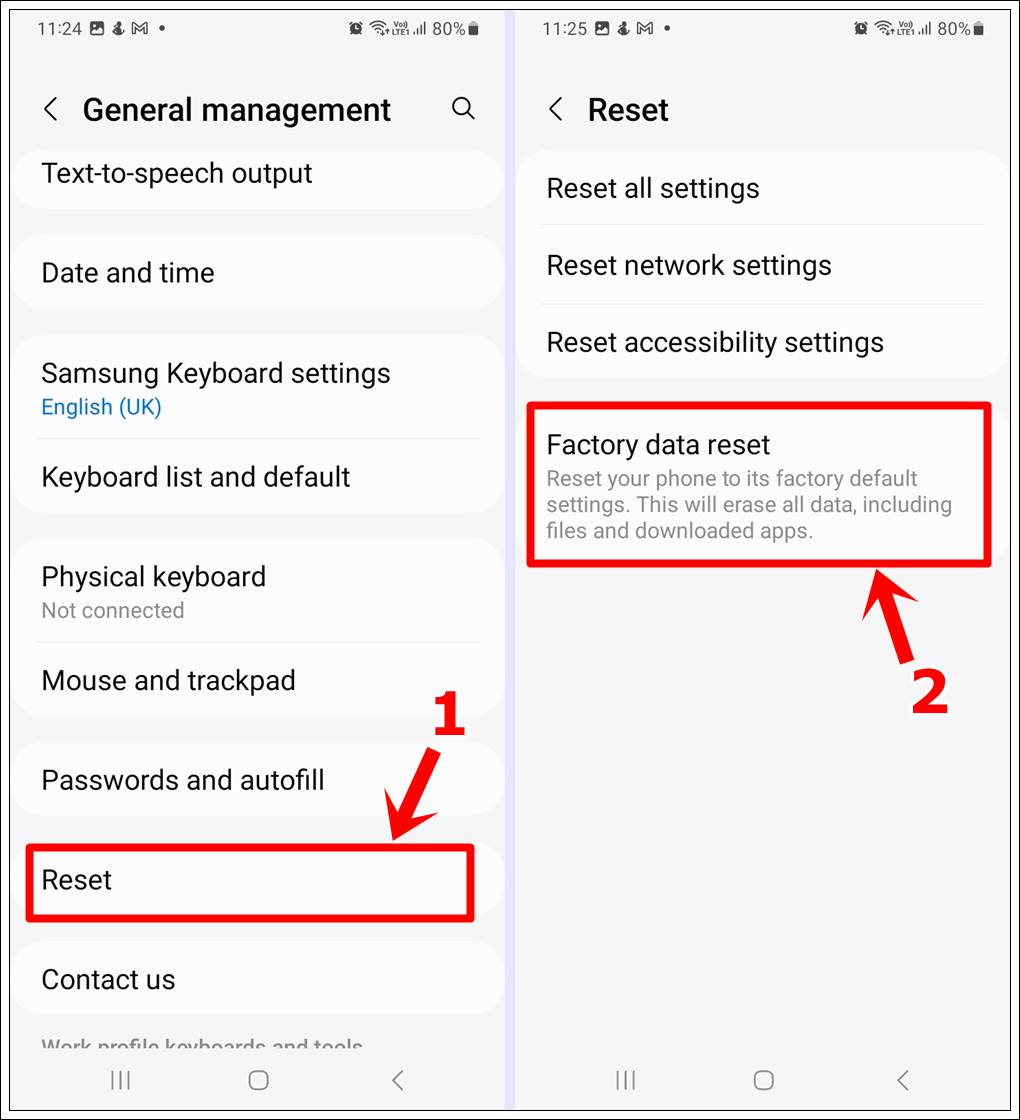
5. Follow the on-screen prompts to confirm and initiate the factory reset.
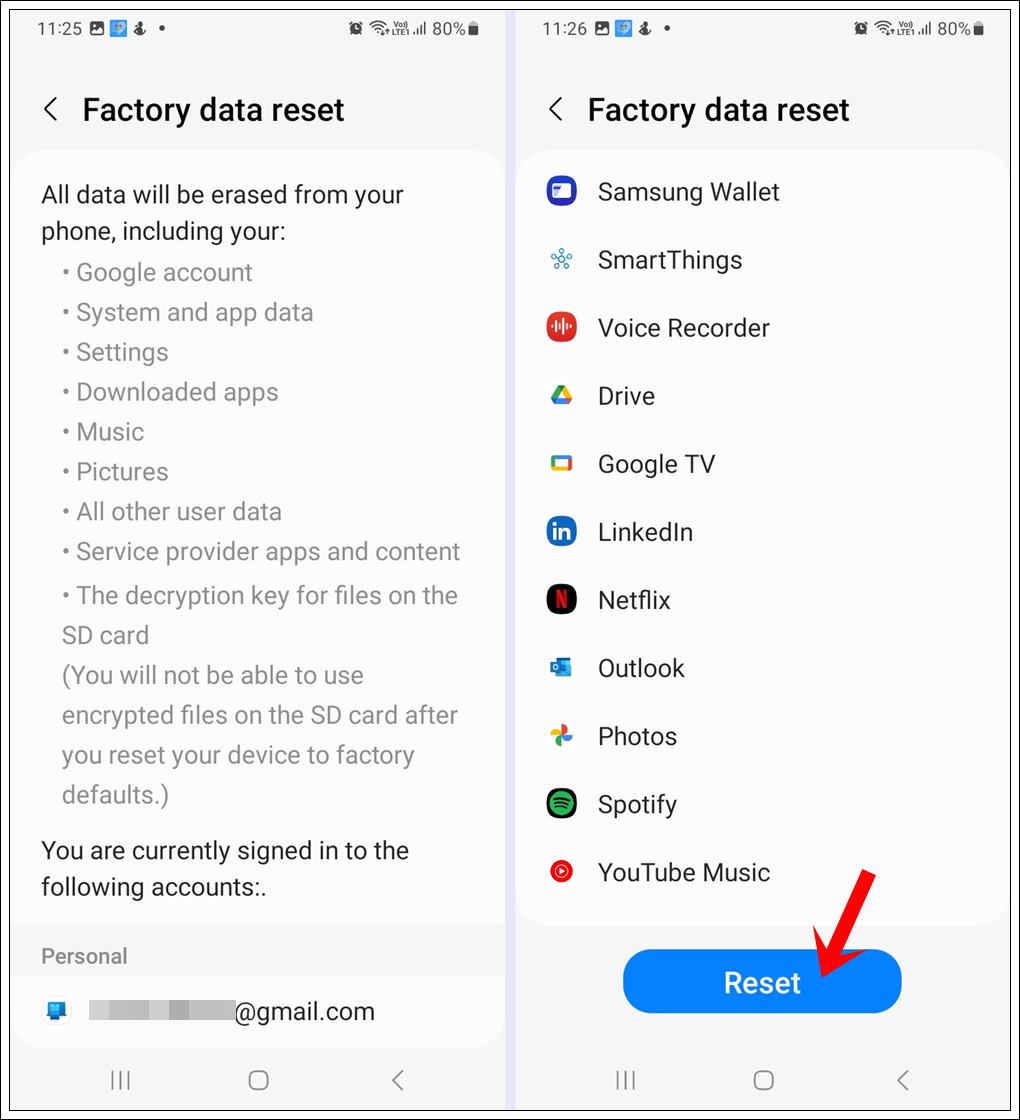
Pro Tip: After the factory reset, reinstall apps selectively and monitor your phone’s performance. Avoid installing all apps at once to identify any specific application causing freezing issues.
9. Check for Malware
Why it works:
Malware or viruses can compromise your Samsung Galaxy phone’s performance, leading to freezing issues. Conducting a thorough malware scan ensures the security and optimal functioning of your device.
How to do it:
1. Download and install a reputable antivirus app for Android from the Google Play Store.
2. Open the antivirus app and initiate a full system scan.
3. Follow the app’s instructions to remove any detected malware or viruses.
Pro Tip: Regularly update your antivirus app and schedule periodic scans to prevent future malware-related issues.
10. Contact Samsung Support
Why it works:
If you’ve tried all the previous solutions and your Samsung Galaxy phone still experiences freezing issues, reaching out to Samsung Support can provide expert assistance. They can offer tailored solutions and guide you through additional troubleshooting steps.
How to do it:
1. Visit the official Samsung support website.
2. Locate the “Contact Us” or “Support” section.
3. Choose the appropriate contact option, such as live chat, email, or phone support.
4. Provide detailed information about the issue and follow the instructions provided by Samsung Support.
Pro Tip: Before reaching out to support, have your device information, including model number and software version, ready to expedite the troubleshooting process.
Read also: How to Fix an Android Phone That Keeps Restarting
Conclusion
By following these ten steps, you can troubleshoot and fix the freezing issue on your Samsung Galaxy phone. Remember to regularly maintain your phone to ensure optimal performance. If you found this guide helpful, share it with fellow Samsung users facing similar issues. A smooth and responsive smartphone awaits you!
